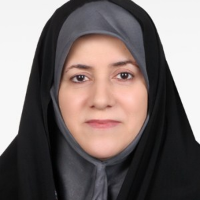The Effect of Skill Complexity during Different Time Lags on Bilateral Transfer
The present paper aims to study the effect of skill complexity during different delays on bidirectional transfer on bidirectional transfer of tracking task in different stages (pretest, acquisition phase, immediate transfer, one-day delayed transfer, two-day delayed transfer, and seven-day delayed transfer). Three variables including handedness, time lagges, and skill complexity were studied. This study was a semi-empirical and applied research and a pretest-posttest plan with two experimental groups was used. Statistical sample included 28 volunteer girl students, with a mean age of 16±0.93 years old, who were all right-handed and had no experience of performing the tracking task. After initial familiarization with designed software, the subjects were randomly divided into two groups of right practice and left practice. The results revealed significant effects of time lags and skill complexity on bidirectional transfer (p≤0.05), as at all stages of research more bidirectional transfer was observed in easy task compared with the hard one. The highest bilateral transfer in easy and hard tasks was found in the second and the seventh day, respectively. Possible reasons for these results include the differences in task processing in terms of skill complexity and the impact of special features of continuous task on retention. Transfer from non-dominant hand to dominant one occurred more frequently than the reverse mode in both groups, which is probably due to higher speed of transfer of data from the right hemisphere to the left hemisphere in the right-handed.
-
The Effect of Online Cognitive Training on Working Memory, Inhibition and Shooting Performance Accuracy: A New Training Approach During Quarantine
Mohammadreza Ghasemian *, Yaser Janbaz Amirani, Hadi Moradi, Masoud Ardakani, Mahdieh Tajpour,
Sport Psychology Studies, Winter 2025 -
Effect of Game-Based Sports Exercises on High-Level Cognitive Processes of Late- Learners
Mohsen Torki, Aali Esmaeili *,
Sport Psychology Studies, Autumn 2025 -
The Impact of Yoga Exercises on Athletes’ Anxiety and Sleep Quality in the Coronavirus Pandemic
Zahra Pooraghaei Ardekani*, Mina Mohammadi, Ehsan Zarian
Physical Treatments Journal, Summer 2024 -
The effectiveness of participatory dyad exercises in different cognitive conditions on table tennis forehand
Elahe Siavashi, Ali Heirani *,
Sport Psychology Studies,




